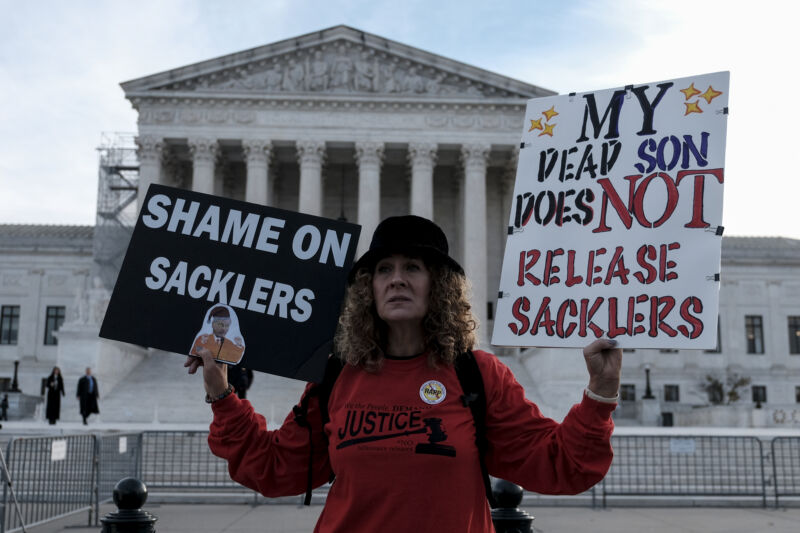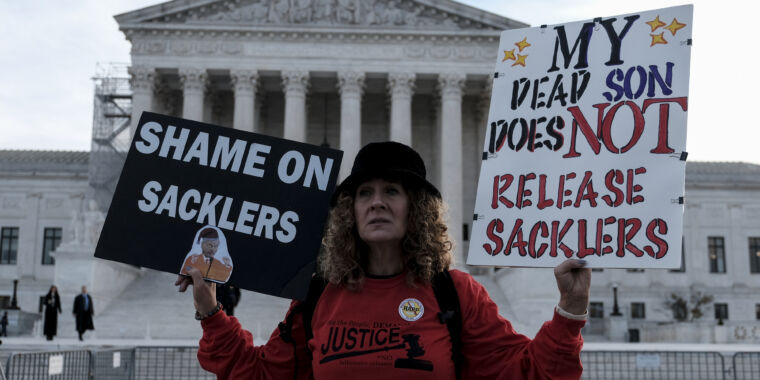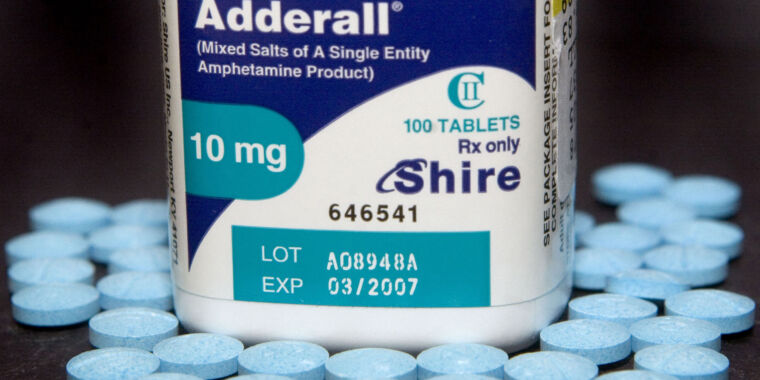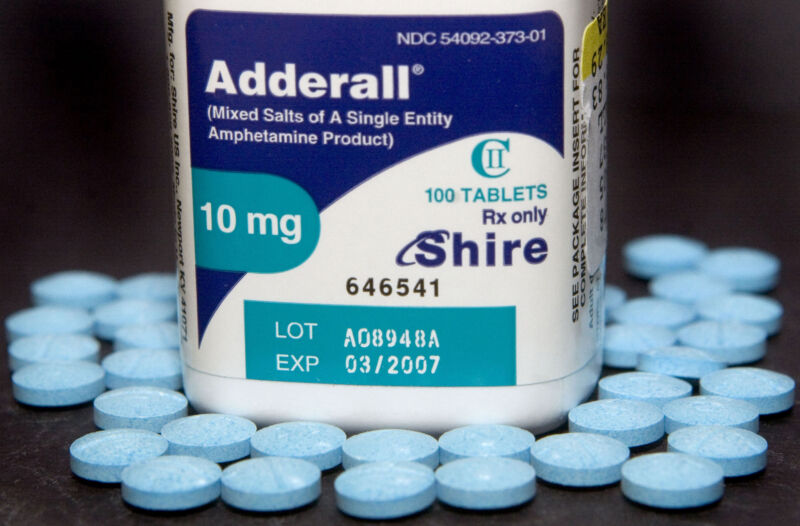SCOTUS tears down Sacklers’ immunity, blowing up opioid settlement
Not immune —
Majority of justices ruled on meaning of legal code; dissenters called it “ruinous”

Enlarge / Grace Bisch holds a picture of stepson Eddie Bisch who died as a result of an overdose on outside of the U.S. Supreme Court on December 4, 2023 in Washington, DC. The Supreme Court heard arguments regarding a nationwide settlement with Purdue Pharma, the manufacturer of OxyContin.
In a 5-4 ruling, the US Supreme Court on Thursday rejected an opioid settlement plan worth billions over the deal’s stipulation that the billionaire Sackler family would get lifetime immunity from further opioid-related litigation.
While the ruling may offer long-sought schadenfreude over the deeply despised Sackler family, it is a heavy blow to the over 100,000 people affected by opioid epidemic who could have seen compensation from the deal. With the high court’s ruling, the settlement talks will have to begin again, with the outcome and possible payouts to plaintiffs uncertain.
Between 1999 and 2019, as nearly 250,000 Americans died from prescription opioid overdoses, members of the Sackler family siphoned approximately $11 billion from the pharmaceutical company they ran, Purdue Pharma, maker of OxyContin, a highly addictive and falsely marketed pain medication. In 2007, amid the nationwide epidemic of opioid addiction and overdoses, Purdue affiliates pleaded guilty in federal court to falsely branding OxyContin as less addictive and less abusive than other pain medications. Out of fear of future litigation, the Sacklers began a “milking program,” the high court noted, draining Purdue of roughly 75 percent of its assets.
An “appropriate” deal
In 2019, Purdue filed for Chapter 11 bankruptcy, leading to negotiations for a massive consolidated settlement plan that took years. As part of the resulting deal, the Sacklers—who did not file for bankruptcy and had detached themselves from the company—agreed to return up to $6 billion to Purdue, but only in exchange for immunity. The bankruptcy court approved the controversial condition, while a district court later overturned it and a yet higher court reinstated it.
In today’s majority opinion from the Supreme Court, Justices Gorsuch, Thomas, Alito, Barrett, and Jackson found that the lower courts that approved the Sackers’ immunity condition had erred in interpreting Chapter 11 bankruptcy code. “No provision of the code authorizes that kind of relief,” they court ruled. The explanation boiled down to a single sentence in a catchall provision. While the code speaks solely about responsibilities of a debtors—which in this case is Purdue, not the Sacklers—the catchall provision allows “for any other appropriate provision” not otherwise outlined.
The erring lower courts, the high court wrote, had interpreted the word “appropriate” far too broadly. Based on the context, any additional “appropriate” arrangements in a settlement that was not explicitly outlined would apply only to the debtor (in this case, Purdue) not to nondebtors (the Sacklers). The provision cannot be read, the justices wrote, “to endow a bankruptcy court with the ‘radically different’ power to discharge the debts of a nondebtor.”
“Ruinous” ruling
Justices Kavanaugh, Sotomayor, Kagan, and Roberts disagreed. In a minority opinion penned by Kavanaugh and joined by Sotomayor and Kagan, the justices blasted the ruling, calling it “wrong on the law and devastating for more than 100,000 opioid victims and their families.”
“The text of the Bankruptcy Code does not come close to requiring such a ruinous result,” Kavanaugh wrote, noting that such deals granting immunity to “nondebtors” is a longstanding practice used to secure just settlements. Neither legal structure, context, nor history necessitate today’s ruling, Kavanaugh continued. “Nor does hostility to the Sacklers—no matter how deep: ‘Nothing is more antithetical to the purpose of bankruptcy than destroying estate value to punish someone,” he wrote, citing a legal essay on Chapter 11 for mass torts.
The opioid victims and others will “suffer greatly in the wake of today’s unfortunate and destabilizing decision,” the dissenting justices wrote. “Only Congress can fix the chaos that will now ensue. The Court’s decision will lead to too much harm for too many people for Congress to sit by idly without at least carefully studying the issue.”
SCOTUS tears down Sacklers’ immunity, blowing up opioid settlement Read More »


